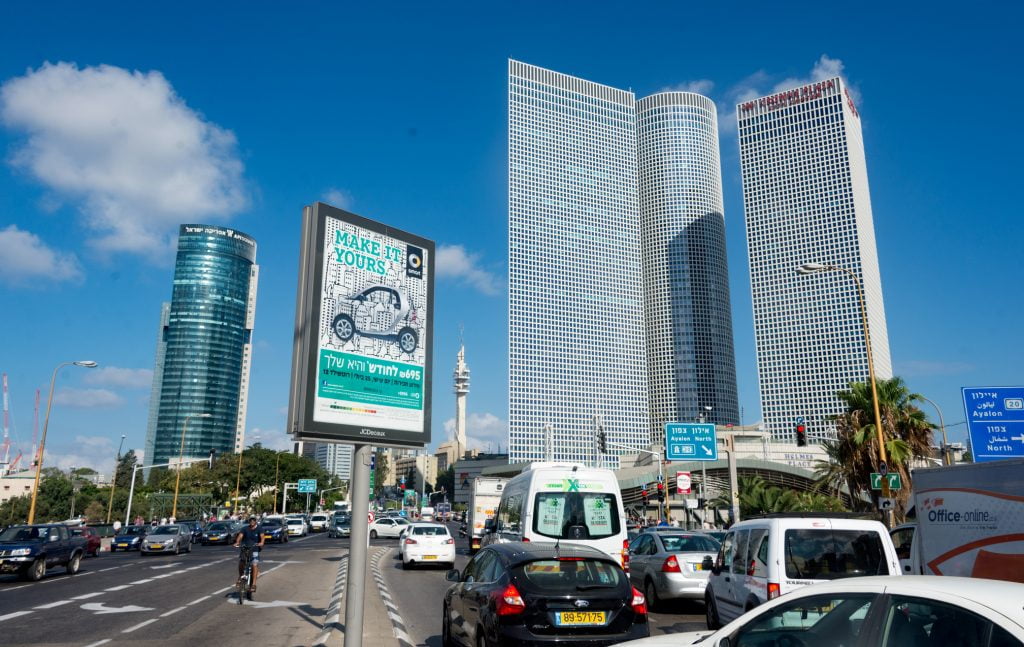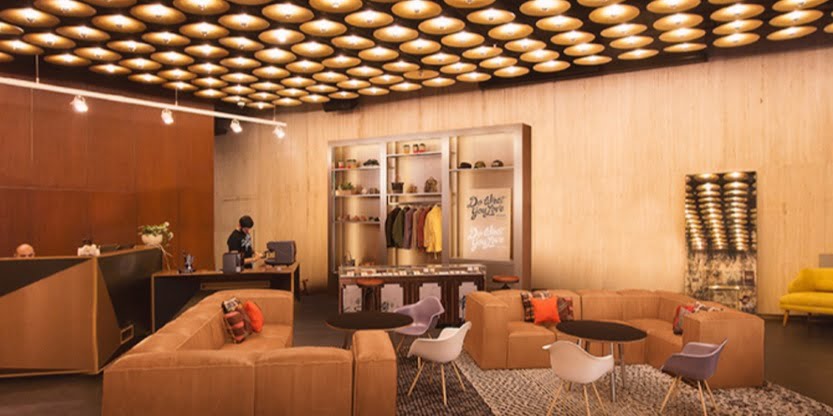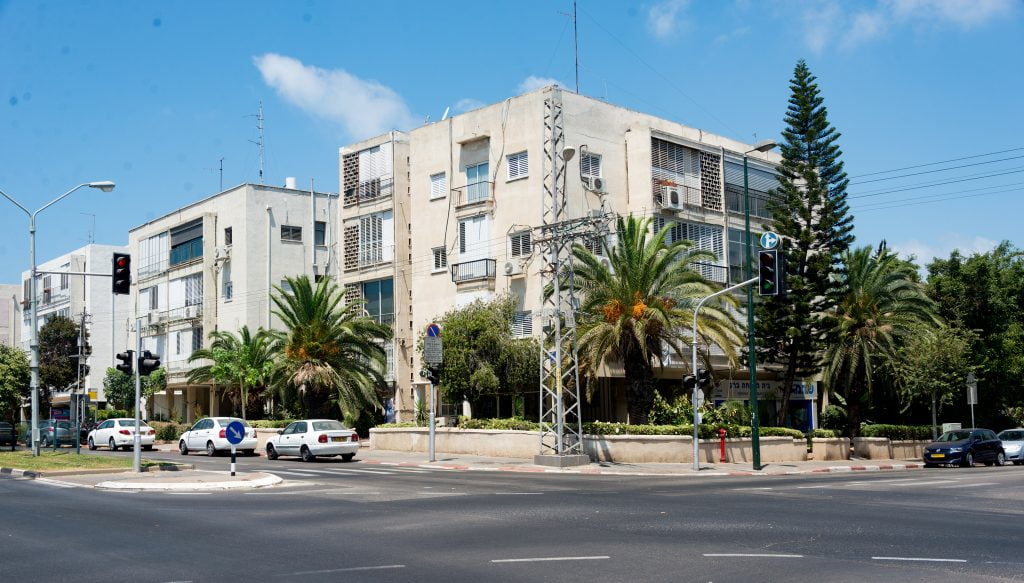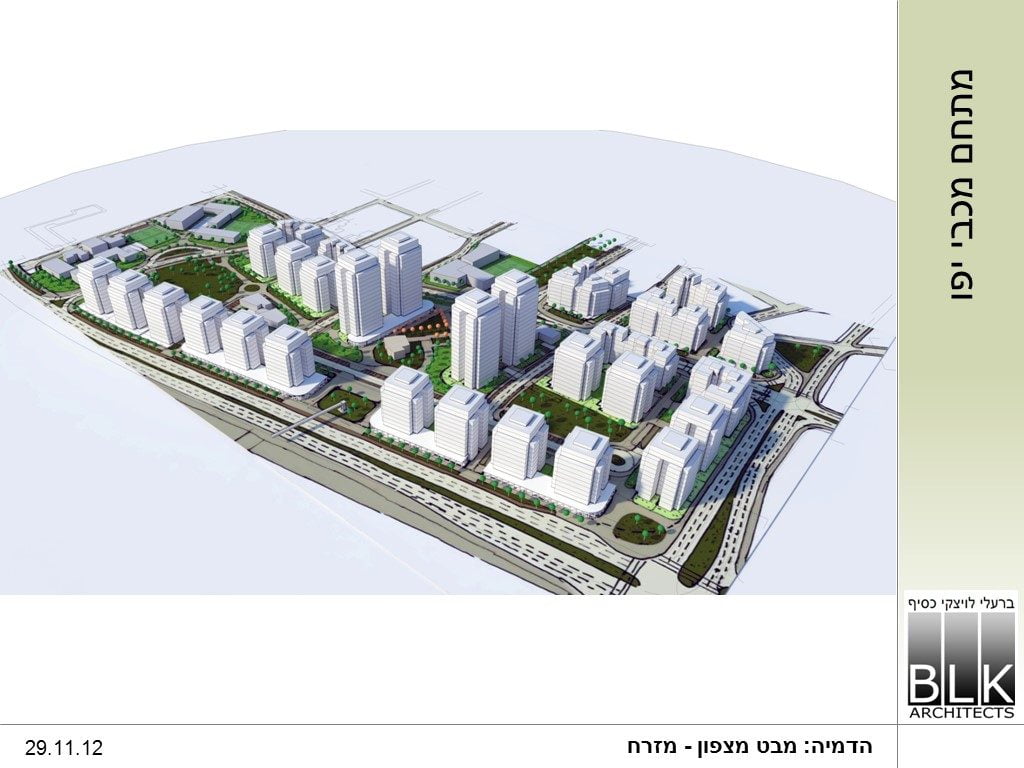WeWork, the shared workspace giant co-founded by Israeli entrepreneur Adam Neumann which has taken the tech and real estate worlds by storm since its founding in 2010, is planning to bring its urban co-living community WeLive to Tel Aviv, according to officials in the Tel Aviv Municipality and the Israeli government.
WeWork launched WeLive, a shared living space that provides furnished apartments, communal spaces, and shared amenities — or an urban kibbutz, if you will — in 2016 in two residential buildings in New York and Arlington, Virginia. The concept was developed by Neumann, who lived on an Israeli kibbutz for a time and co-founder Miguel McKelvey, who also grew up in a commune-like environment in the US. The two sought to offer flexible and affordable housing solutions and the concept of the collective community to urban areas. “Just as WeWork changed the way people work through its philosophy of shared space, services, community and social interaction, WeLive offers a disruptive alternative to the way people live,” the company, valued at a whopping $20 billion, said at the time.
SEE ALSO: A New Kibbutz? WeWork’s Urban Community WeLive Could Revolutionize City Living
In Israel, WeWork operates its co-working spaces in six locations — four in Tel Aviv, one in Herzliya and one in Beersheba — and is reportedly in talks to open a seventh spot in Petah Tikva in a building recently purchased for NIS 50 million, according to a report last week in the Israeli business daily TheMarker. Across the world, WeWork has 178 locations in 56 cities across 18 countries with over 150,000 customers as of last month.
Now, WeWork is said to be bringing the kibbutz, an Israeli phenomenon that is over 100 years old, to Tel Aviv.
Eitan Ben-Ami, the director-general of the Israeli Environmental Protection Ministry, exclusively revealed to NoCamels that plans are underway for a combined WeWork and WeLive high-rise near Tel Aviv’s Savidor railway station on Arlozorov street.
Orly Erel, the head of the central planning department at the Tel Aviv-Jaffa Municipality, also told NoCamels that WeWork recently purchased a building near the famous Azrieli towers from the Azrieli Group, one of Israel’s largest real estate companies that develops and manages shopping mall and commercial buildings. The site is between the Savidor station and the Azrieli buildings, she indicated, and is still in the construction phase.
WeWork declined to comment before publication but later told NoCamels that the company did not purchase a building. The Azrieli Group said that “when there will be something to report, we will do so.”
Ben-Ami tells NoCamels that the preliminary plans are for approximately 15 to 20 floors of the building to be for WeWork and the rest for WeLive shared housing. Erel says approximately 25 percent of the building will be for living quarters, including luxury apartments to be sold on the private market, as well as WeLive spaces, while the majority will be WeWork. She indicates that the WeLive rooms are likely to be small and that the project is aimed at business professionals who want to live close to work — literally.
Israel’s housing market and Tel Aviv’s rental costs
Israel has struggled with skyrocketing housing prices over the better part of the past decade, and Tel Aviv — the financial hub — is its most expensive city.
The average value of an apartment in Tel Aviv runs at close to NIS 3,000,000 (roughly $860,000), according to 2015 data by the Central Bureau of Statistics (CBS), and rental prices are exorbitant and given to individual landlords’ whims as the rental market is by and large undeveloped (close to 70 percent of Israelis own their homes as of 2016, according to CBS). This sparked a summer of protest in 2011 known as the j14 social justice movement with demands the government do more to rein in the country’s high cost of living, said to be among the highest in the developed world.
Efforts to curb housing costs, which rose by 112 percent between 2006-2016, have had little effect as demand outpaces supply and the government owns a majority (over 90 percent) of the land.
In July, Finance Minister Moshe Kahlon announced that he was expanding a low-cost housing program first revealed in 2015 in bid to curb the rising prices, adding 15,000 new apartments across the country, including in areas near Tel Aviv, at subsidized prices for first-time buyers using a lottery system.
Sign up for our free weekly newsletter
SubscribeTel Aviv, too, has taken a series of steps since 2011, launching a number of affordable housing projects in different parts of the city and offering hundreds of apartments at reduced rent prices for long-term contracts of at least three years. The city’s long-time mayor, Ron Huldai, said in 2013 that the municipality was taking it upon itself “to create a model for affordable housing for the first time in the State of Israel,” adding that it came “from the understanding that we need to allow the middle class to stay and live in the city centers, especially in light of the increasing housing prices.”
This year, the municipality launched TLV4Less, a project in collaboration with a private construction and planning company that offers reduced rentals via a lottery system in a number of future complexes across the city, including self-described “luxury” ones such as MidTown Tel Aviv. Huldai said the city has led a number of “urban renewal projects in the city aimed at increasing the number of apartments in the market alongside affordable housing plans for families and young people.”
Tel Aviv takes the sharing concept to housing
Now the city appears to be taking a page out of WeLive’s book, embarking on a number of projects that will include shared housing. This follows a number of already existing sharing initiatives taken on by the city in recent years, including the Tel-O-fun bicycle rental system and Autotel, Tel Aviv’s $26 million car-sharing project.
Erel tells NoCamels the planned WeLive spaces in Tel Aviv will be a “private pilot” for the concept in the city, and is in line with Tel Aviv’s efforts to reduce the cost of living and allow people to live there comfortably.
The municipality recently approved a project in the port city of Jaffa, south of Tel Aviv and technically part of the city, to build a new neighborhood that will include a portion for shared housing.
The details are still to be determined, but Erel says some 1,600 apartments are planned for the project, dubbed “Maccabi Jaffa” since the area is near Bloomfield Stadium, the home stadium of soccer club Maccabi Tel Aviv. It is part of a government-sponsored subsidized program that allows people to purchase homes for below-market value in newly-developing or future projects.
Of those 1,600 flats, between 120 and 140 are for shared living, she says.
The tenants, Erel tells NoCamels, will share a “laundry room, a communal area, a kitchen, a roof for growing vegetables, a playground” as well as other amenities, with the size of the apartments are “at between 53-63 meters, with rooms at between 17-20 meters.”
The project, the city said in a statement last month, is “part of a global trend of a sharing economy.”
SEE ALSO: After Conquering Shared Work Spaces Worldwide, WeWork Takes On Education
A similar initiative is underway in a northern area of Tel Aviv, in Kochav Hazafon, Erel says, where a six- to seven-storey building will have a number of apartments allocated for shared living while the rest will be up for sale in the private market.
Erel says the city has welcomed any ideas that will help to make Tel Aviv more affordable for families and young people, and that more people could soon make the city their home.
Related posts

Rehabilitation Nation: Israeli Innovation On Road To Healing

Israeli High-Tech Sector 'Still Good' Despite Year Of War









Facebook comments